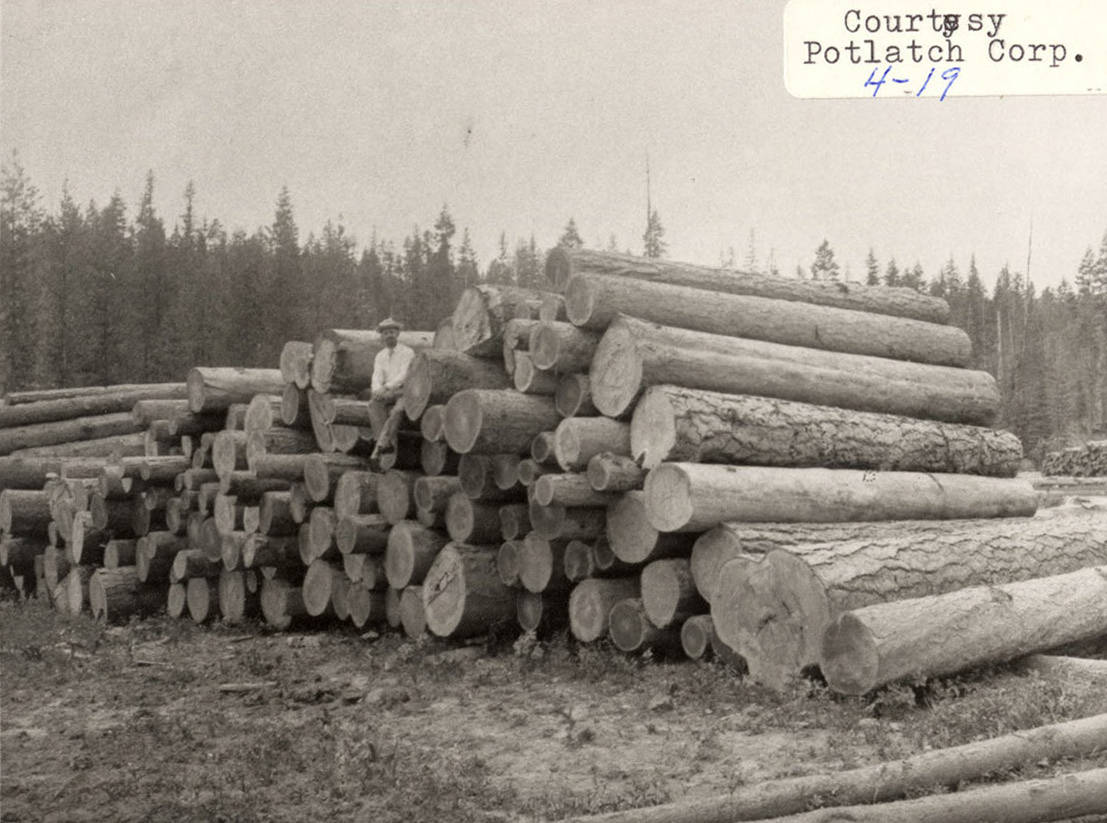We’re starting a new series featuring one of our strongest collecting areas: logging in North Idaho. We’ll be focusing on one lumber company in particular, the Potlatch Lumber Company, which is extremely well-documented within our collections and an important part of logging history in North Idaho. It was operational from 1903-1986 and the logging camps spanned a large swath of North Idaho.
In this series, we’ll learn about the basic process of logging: cutting the tree down, transporting the log a medium distance to a staging area (like a boat dock or railroad track) and then transporting the logs from the staging area in bulk to a far-away lumber mill where the logs are then turned into lumber. Lumber is defined as a timber that has been processed (sawed or split) into planks, boards, beams, etc. The process of turning raw timber into usable lumber is the purpose of logging and this is the process we’ll focus on in this series!
Most of the series will feature types of transportation - logs are heavy and difficult to transport long distances, so logging companies were constantly engineering and innovating the most efficient ways to do so!
Stay tuned for more Logging Lessons next week!
Sources
Photos courtesy of the Potlatch Historical Society Collection
Photos courtesy of Gale Scrapbooks: Timber and Logging, Potlatch Historical Society and Lee Gale Scrapbooks: Woods 2, Potlatch Historical Society at Special Collections, University of Idaho Library.


